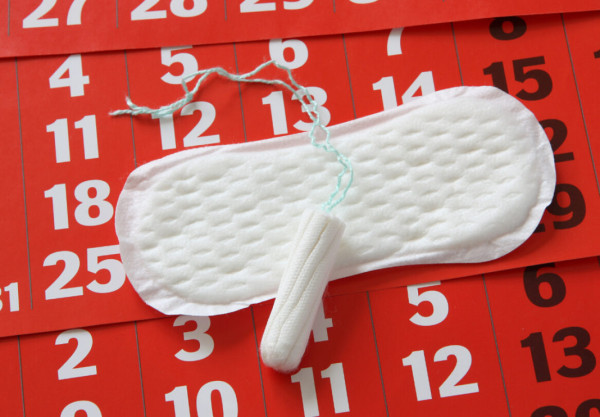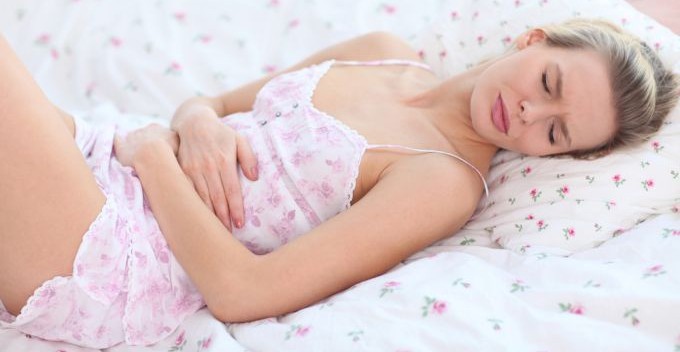Abundant menstruation: what is the reason and what to do
The body of every woman works taking into account individual physiological characteristics. For some, critical days pass completely painlessly and do not cause much discomfort, other women complain of recurrent pain and malaise during menstruation. This phenomenon in medicine is called menorrhagia - this is one of the symptoms of sexual dysfunction, if left untreated, endometritis, anemia, inflammation of the uterine mucosa and reproductive problems can develop. What determines the number of periods and is it possible to influence their allocation?
Monthly rate
Of course, every woman is different and PMS can experience in different ways. But still, gynecologists agree on one thing - there is a discharge rate, in their opinion, during menstruation, the amount of blood and mucus should not exceed 150 ml. If there is more blood and it is secreted for about 12 days, then menstruation is considered abundant.
First of all, do not be afraid of this fact, the reason may be hormonal failure or severe stress, but leaving the situation uncontrolled would also be unreasonable. It is necessary to conduct an examination with a specialist and pass tests in order to find out in time the cause of heavy periods and not lead to more serious health and childbirth problems.
The most important feature hypermenstrual syndrome called profuse discharge of blood, clots and exfoliated endometrium (mucus).
Other symptoms are:
- general malaise, weakness, dizziness;
- aching dull pain in the lower abdomen;
- inability to lead a normal life during menstruation;
- the need to change pads and tampons more often than after 2 hours, as well as at night;
- use of hygiene products with the highest degree of protection.
Varieties of menorrhagia:
- Primary menorrhagia is characteristic of young girls who have just started their menstruation. The reason, as a rule, is an unstable hormonal background. In this situation, you should immediately consult a specialist, because heavy periods can lead to the development of anemia and polycystic ovary disease.
- Secondary menorrhagia occurs in adult women with an already established menstrual cycle. Hypermenstrual syndrome in this case often becomes a symptom of serious diseases.

Causes of heavy periods
In quite healthy women, episodic cases of profuse discharge may occur during monthly... This can be explained by increased emotional stress, stress, depression, active physical activities, a sharp change in climate, as well as illiterate and uncontrolled use of contraceptive and hormonal drugs. Physiological causes are often hormonal disruptions in adolescence or during menopause.
The intrauterine device is a contraceptive device that is not suitable for all women. Abundant menstruation with clots is considered the norm for the first three months after the spiral is placed. If at the end of this period the cycle does not return to normal, this is a reason to seek help, as this may indicate the presence of inflammatory processes.
Other factors that can trigger symptoms of menorrhagia:
- lack of vitamins and minerals that contribute to blood clotting;
- inflammatory processes in the uterine cavity - fibroids, polyps, cancerous tumors;
- dysfunction of the endometrium - hyperplasia, polyps, etc.
- pathology of the thyroid gland, cardiovascular system;
- blood diseases;
- genetic predisposition;
- complications after childbirth and termination of pregnancy;
- liver and urinary tract diseases;
- abuse of hormonal emergency contraception.

Most girls during puberty experience the inconvenience of copious monthly... Considering that not everyone turns to a gynecologist with this problem, it can be argued that more than half of adolescent girls suffer from hypermenstrual syndrome in the first 2-3 years after the onset of discharge. This is primarily due to the imperfection of the hormonal system and the interruption of the relationship between the central nervous system and the female reproductive system.
The main causes of menorrhagia in girls:
- unsatisfactory psycho-emotional state and physical exhaustion (especially often found in children with a high degree of responsibility, excellent pupils);
- chronic and infectious diseases, such as flu or sore throat;
- mental trauma;
- lack of a daily regimen, adequate nutrition, lack of vitamins and minerals.

Profuse periods with clots
Doctors say there is a direct relationship between the amount of menstrual blood and its consistency. The appearance of clots indicates that blood accumulates in the uterine cavity and has time to coagulate before it comes out.
How can this phenomenon be explained:
- The presence of certain obstacles at the exit from the uterus, for example, they can be myomatous nodes that grow inside or polyps in the endometrium.
- Violation of the contractile function of the uterus. In order for the discharge to be pushed out in a timely manner, the uterine walls periodically contract. The cause of the problem is the same fibroids or incorrect functioning of the endometrium. Insufficient contraction of the uterus after childbirth signals a violation of its recovery.
- Hormonal dysfunction, in which ovulation does not occur and the egg does not fully mature.
- It happens that clots are the cause of blood diseases and insufficient ability to clot.

How to stop heavy periods
Women suffering from hypermenstrual syndrome, first of all, must pass laboratory tests and be examined by a doctor in order to exclude the presence of infections and other diseases. But there are a number of recommendations that a woman herself is able to fulfill, namely:
- reduce physical activity, including sports, or completely abandon them for a while;
- do not drink alcoholic beverages and coffee;
- try to worry as little as possible;
- take a course of vitamins and minerals that strengthen blood vessels and have a beneficial effect on blood circulation;
- if the pain is taken by surprise, you can briefly apply a heating pad with cool water to your stomach or take pain relievers and antispasmodics;
- A decoction from shepherd's purse or nettle helps to stop the bleeding.


